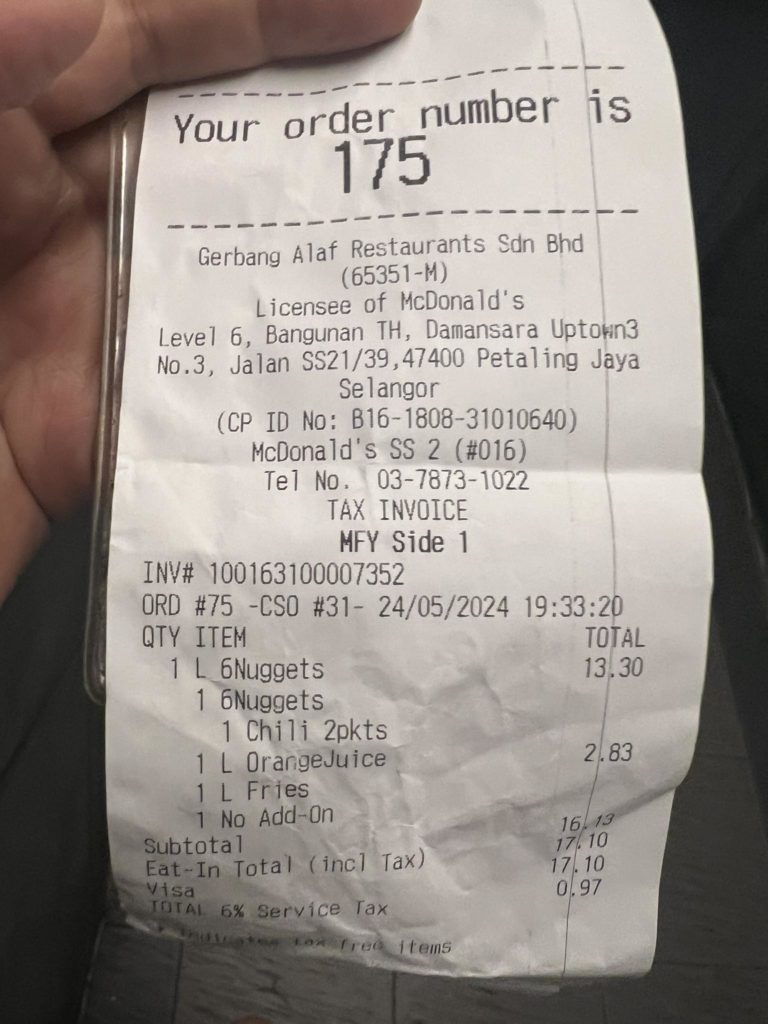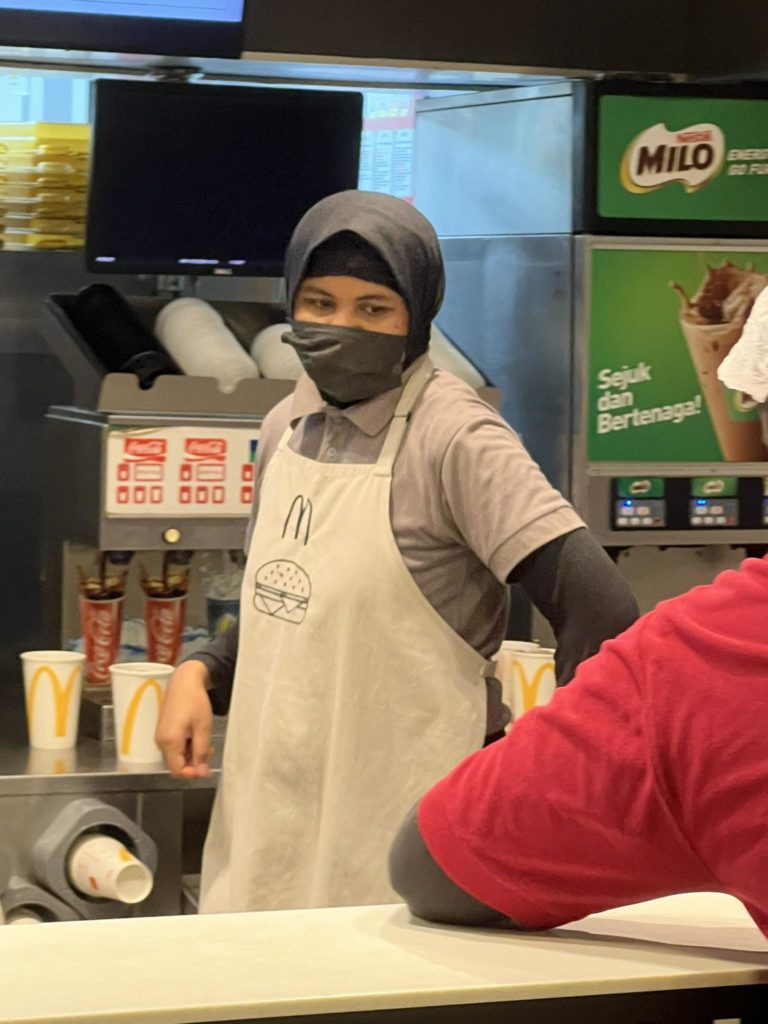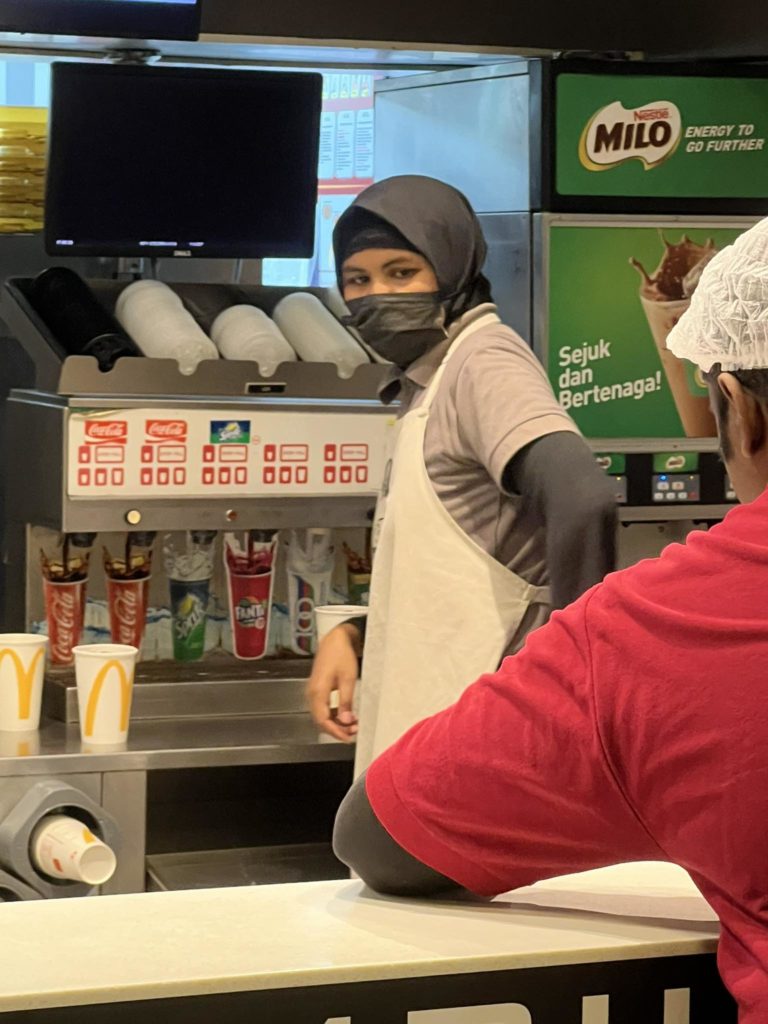Imagine stepping into your favorite fast food restaurant for a quick meal. You’re craving a burger and fries, and all you need to make the experience even better is a little extra chilli sauce. It seems like a small request, right? Well, for a customer at the McDonald’s SS2 in Petaling Jaya, Malaysia, this seemingly simple ask sparked an incident that went viral and got everyone talking about customer service in the fast food industry.
A Saucy Situation at McDonald’s
On May 24, 2024, what began as an innocent condiment request quickly turned into a controversial situation that would affect McDonald’s reputation in Malaysia. While fast food chains are known for their quick service and convenient meals, they also face the challenge of ensuring that customers feel respected and valued, even in the busiest of times. In this case, the chilli sauce controversy raised important questions about customer expectations, employee training, and corporate responsibility.
The Incident Unfolds: When a Simple Request Goes Awry
It all started when a customer, looking forward to enjoying a meal at McDonald’s SS2, asked for extra chilli sauce to accompany their order. For many fast food patrons, this might be a routine request, something employees handle without a second thought. However, in this case, things went south quickly.
The employee’s response to the request was anything but polite. Instead of providing the extra sauce or politely explaining any limitations, the employee’s rude and dismissive attitude shocked the customer. The exchange escalated, with the customer feeling disrespected and dissatisfied by the interaction. While the request itself was minor, the lack of courtesy and professionalism left a lasting impact on the customer.
It’s easy to overlook how these seemingly small moments can shape a brand’s image, but in a fast-paced environment like fast food, they matter more than we might realize. Employees represent the face of the company, and how they interact with customers can either build loyalty or lead to frustration. In this case, the incident left many wondering if McDonald’s was doing enough to ensure that their customer service standards were being upheld.
Customer Expectations vs. Employee Response: The Disconnect
When you walk into any fast food restaurant, you likely have certain expectations. You expect your food to be served quickly, of course, but you also expect to be treated with respect. After all, customers are paying for a service, and the interaction with employees should be professional, courteous, and friendly.
For the customer at McDonald’s SS2, the expectation was simple: a polite exchange, perhaps with a bit of small talk, and the extra chilli sauce they requested. But what they received was far from what they anticipated. This disconnect between customer expectations and the actual response they received points to a bigger issue that fast food chains sometimes struggle with: balancing speed and quality of service.
Fast food employees, while expected to serve customers quickly, should never sacrifice courtesy for efficiency. Empathy and professionalism should be at the core of every customer interaction. When customers make small requests—like asking for extra sauce—they’re not only looking for the item itself but for a positive, smooth interaction that makes them feel valued.
The Power of Social Media: How the Incident Went Viral
As we know, social media has the power to turn even a small incident into a widespread conversation. After the incident at McDonald’s SS2, the customer took to social media to share their experience. The post quickly gained traction, with many other customers chiming in to voice their own opinions and frustrations. The story spread, and soon, McDonald’s Malaysia found itself facing a social media backlash.
Public reactions ranged from sympathy for the customer to outright anger over the way they were treated. Comparisons to a similar incident in Melaka, where another customer had faced poor service at a different McDonald’s location, further fueled the fire. The widespread online conversation raised awareness about the importance of maintaining high customer service standards, especially in the fast food industry, where customer interactions are brief but critical.
Social media isn’t just a platform for consumers to vent—it’s a space where companies can also step in and manage their reputation. McDonald’s Malaysia had to quickly respond to the situation, clarifying their stance on the issue and addressing the concerns raised by the public.
Corporate Accountability: How McDonald’s Responded
In the wake of the controversy, McDonald’s Malaysia launched an internal investigation into the incident. The company acknowledged the poor behavior exhibited by the employee and assured the public that such behavior would not be tolerated. McDonald’s also took the opportunity to clarify their condiment policy, emphasizing that customers should always feel free to request condiments without fear of rude responses.
Additionally, McDonald’s used this incident as a chance to reaffirm their commitment to training employees in customer service. The company made it clear that they take complaints seriously and are continuously working to improve employee interactions with customers. This response was an important step in regaining public trust and demonstrating accountability.
It’s a reminder that customer service doesn’t just happen by chance. It’s the result of ongoing training, clear policies, and an understanding of the role employees play in creating positive experiences. When a company faces public backlash, how they respond can make or break their reputation.
Lessons for Fast-Food Chains: Balancing Efficiency and Satisfaction
The chilli sauce controversy at McDonald’s SS2 Petaling Jaya highlights a broader issue faced by fast food chains worldwide: how to balance efficiency with customer satisfaction. The fast-paced environment of fast food restaurants often means that employees are under pressure to serve customers quickly. But in that rush to deliver speed, it’s essential that the quality of service doesn’t suffer.
Fast food chains should look for ways to improve their service protocols, ensuring that employees can handle customer requests in a polite, timely, and efficient manner. Whether it’s asking for extra condiments, a modification to an order, or simply seeking assistance, these small moments matter in creating a positive customer experience. By prioritizing training in these areas, fast food restaurants can help ensure that their staff is equipped to deal with all situations professionally and respectfully, no matter how minor the request may seem.
Conclusion: Upholding Standards in a Competitive Market
The incident at McDonald’s SS2 Petaling Jaya serves as a valuable lesson for both consumers and fast food chains. For consumers, it’s a reminder to always advocate for yourself and share your experiences—whether good or bad—because your voice can shape the future of customer service. For fast food companies, it’s an opportunity to reassess and refine training programs, policies, and employee interactions with the goal of ensuring that every customer leaves with a smile.
In the competitive fast food industry, where every interaction counts, maintaining high standards of service is key to long-term success. As we’ve seen from the chilli sauce controversy, even small incidents can have a ripple effect. McDonald’s Malaysia’s response to the situation shows that when companies are willing to listen, learn, and adapt, they can turn a negative experience into an opportunity for growth.
By continuing to prioritize empathy, respect, and communication, fast food chains can ensure that they meet the expectations of their customers, building loyalty and trust in an increasingly crowded market. Ultimately, the focus should always be on delivering a great experience—one that values both efficiency and human connection.




The Coverage Malaysia



